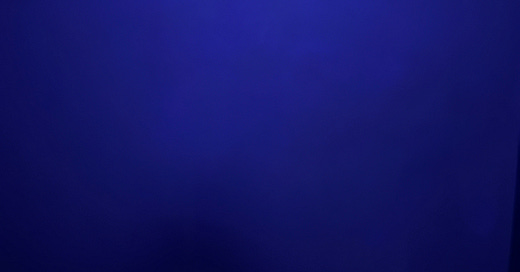'With tears blue and with a wounded heart'
How did blue come to be so associated with melancholia, to be its own state of being, its own thing that is felt and adopted?
As seasons change, so do the hues and tones tinting our everyday. Things have been feeling very grey in the past week. I find, especially living in a city, that it can be almost suffocating to not see the brightness of a clear sky for days in a row. The concrete and clouds become tightly connected. It is grey, and it feels grey. I feel grey.
I like to think that we feel in colours, and I wonder what it is about certain ones that emit such strong feelings in us that they’ve become descriptors of emotion. To feel blue is to feel sad and melancholy. To turn red with anger. Green with envy.
Of course, these sayings limit the complexities of these very human feelings and very natural colours. If blue is sadness, then it is also everything else that sadness is so tightly connected with – there’s loss, loneliness, but there’s also joy, happiness, laughter, love.
I wonder how blue came to be so associated with melancholia, why it became its own state of being, its own thing that is felt and adopted.
In the English language, we seem to have been feeling blue for at least a few centuries. A 19th-century French-American artist John James Audubon is said to have written in his journal in 1827 that he “had the blues”.
American writer Washington Irving used the blues as a synonym for melancholy in 1807, in his periodical Salmagundi: “I saw he was still under the influence of a whole legion of the blues.”
In 1785, English lexicographer Francis Grose published ‘A Classical Dictionary of the Vulgar Tongue’, where he referenced the phrase “Blue Devils” as low spirits, connecting the colour with feeling low.
The adjective “blue” linking sadness to something is said to have been first recorded as far back as 1385, in Geoffrey Chaucer’s short narrative poem ‘Complaint of Mars’. In it, he tells the story of a love affair between Mars and Venus, and includes the line: “With tears blue and with a wounded heart.” (I like that, it sounds like a country song.)
Blue tears. Teres blewe, as it was written in those strange old English letters.
For me, water is blue, rain is blue, the rivers, the waterfalls, the drizzle on a grey day – they’re all blue. So the liquid that streams from our eyes is blue too. Those blewe teres fall when I laugh too much or when I am deeply moved. They are happy as well as sad.
I was thinking of these blue tears as I’ve been feeling slightly flat and trapped by the greyness of the sky, and as the temperature has become those few degrees colder. I feel it most when I think of creativity and creative output; when I think of what I would like to achieve, what I hoped and thought I would. Unrealistic expectations, unnecessary disappointments.
There’s a pressure surrounding creativity and art to be constantly producing (self-inflicted, no doubt). But sometimes, you just can’t. I’m finding it increasingly difficult to find the energy when most of the hours of my day are taken up by a different job. I’ve struggled to sit down to write, to feel and to create, distracting myself out of the fear that if I do try, then nothing will come out. It’s a state of emotional paralysis in a way – that annoying habit of procrastination. This to me is what some people might think of as the blues. I see it as grey.
Blue notes
Some non-musical things I’ve been working on.
I have the absolute pleasure of speaking to couples about their sex lives for the Guardian’s sex column. It’s fascinating, funny and often deeply moving. I particularly liked this one, and hope it will inspire some fun in us all.
I commission Yassmin Abdel-Magied for Hyphen magazine (who has a wonderful Substack). She wrote this piece on friendship, which speaks to the complexities of losing friends as we get older.
It’s been a month since the far-right racist riots in the UK. It was a violent stain in an already isolating and traumatic year for minority communities. I urge you to read this piece by Usman Sharifi, who fled Afghanistan and moved to the UK, reflecting on the violence.
Thank you for reading and supporting x





